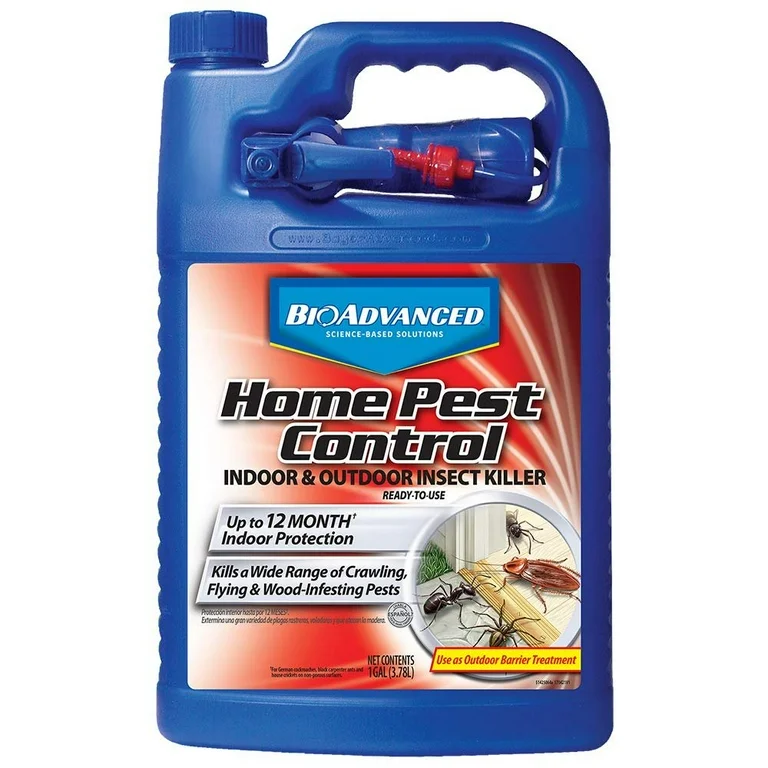Experienced A1 Exterminators Charlotte NC - Fast and Trusted Solutions
Experienced A1 Exterminators Charlotte NC - Fast and Trusted Solutions
Blog Article
Bed Pest Therapy Break Down: Contrasting Chemical Vs. Non-Chemical Solutions
In the world of pest control, especially when dealing with the relentless concern of bed bugs, the selection between chemical and non-chemical treatment remedies can be a pivotal one. Both methods supply unique benefits and drawbacks, influencing elements such as effectiveness, security considerations, and overall price. By taking a look at the nuanced information of each method, a more clear understanding of which path to pursue in dealing with a bed pest problem can be obtained.
Effectiveness of Chemical Treatments
Chemical treatments for bed pest infestations have actually been commonly acknowledged for their rapid and potent effectiveness in getting rid of these bugs. When considering the effectiveness of chemical treatments, it is vital to comprehend that they can offer a quick and extensive solution to a bed bug problem. Specialist pest control experts typically rely on insecticides to target bed insects at numerous stages of their life cycle, including nymphs, grownups, and eggs. These chemicals generally function by interrupting the bed bugs' nerves, resulting in paralysis and ultimate death.
In addition, chemical therapies have the advantage of offering recurring impacts, implying that they can proceed to get rid of bed pests also after the initial application. This residual action is specifically advantageous in combating any kind of possible re-infestations. Additionally, the quick action of chemical treatments can bring relief to people dealing with severe bed pest problems, allowing them to gain back control of their home quickly.
Safety And Security Worries With Chemical Solutions
One critical element that calls for careful factor to consider when using chemical services for bed bug therapy is ensuring the safety of occupants and the atmosphere. Direct exposure to specific chemicals used in bed insect therapies can lead to respiratory system problems, skin inflammation, or other negative reactions, especially in individuals with pre-existing problems or level of sensitivities.
Furthermore, the ecological impact of chemical remedies is an additional significant factor to consider. Some pesticides used in bed bug therapies may be unsafe to advantageous bugs, wildlife, and ecological communities if they seep into the dirt or water systems. It is essential to make use of chemical therapies sensibly, following safety and security standards, and considering much less hazardous options to reduce these risks and make sure the risk-free and efficient administration of bed bug problems.
Advantages of Non-Chemical Methods
Considering the potential security worries and ecological impact connected with chemical options for bed bug therapy, exploring non-chemical approaches presents a promising alternative with a number of unique benefits. Non-chemical methods use a more secure option for families, specifically those with children, people, or family pets conscious extreme chemicals. These strategies remove the dangers of exposure to poisonous materials, minimizing the capacity for unfavorable health and wellness effects. Furthermore, non-chemical treatments are ecologically friendly, as they do not add to air or water air pollution, making them a sustainable choice for insect control.
In addition, non-chemical solutions can be effective in targeting bed insects, including hard-to-reach areas where chemical therapies might not permeate. Approaches such as heat therapy, vacuuming, steam cleaning, and mattress encasements offer detailed obliteration without making use of harmful chemicals. Furthermore, non-chemical techniques can be much less turbulent, needing marginal preparation and enabling quicker reentry into dealt with areas. Generally, going with non-chemical bed pest our website therapy methods not only focuses on safety and security and environmental management but likewise guarantees extensive and efficient parasite control.
Limitations of Non-Chemical Treatments

Additionally, check out here non-chemical therapies usually require several applications to achieve effective removal. This can be time-consuming and may not always guarantee complete elimination of all bed bugs and their eggs, specifically in hard-to-reach or concealed locations.
Additionally, the success of non-chemical therapies heavily depends on proper execution and thoroughness, which can be testing for individuals without professional experience. Insufficient application of non-chemical approaches may lead to insufficient removal, leading to consistent invasions and the requirement for added therapies.
Therefore, while non-chemical therapies have their benefits, it is important to recognize these restrictions and consider them when figuring out the most effective method for taking care of bed bug infestations.
Cost Contrast: Chemical Vs. Non-Chemical Options
Provided the constraints linked with non-chemical treatments, a crucial facet to review in the context of bed insect administration is the cost contrast in between chemical and non-chemical choices. In comparison, non-chemical treatments like warm therapy or steam can be a lot more costly, with prices varying from $1,000 to $6,000 for an entire home. While the first expense of chemical treatments might seem lower, several treatments might be called for to fully get rid of the problem, potentially boosting the general cost.
Final Thought

Thinking about the potential safety and security worries read this post here and environmental impact linked with chemical options for bed insect therapy, discovering non-chemical approaches provides a promising option with a number of unique advantages.Offered the limitations associated with non-chemical therapies, an important facet to assess in the context of bed insect administration is the expense contrast between chemical and non-chemical options. In comparison, non-chemical therapies like warm treatment or vapor can be more costly, with expenses ranging from $1,000 to $6,000 for a whole home. While the preliminary price of chemical therapies might appear lower, several treatments might be called for to totally eliminate the infestation, possibly boosting the overall cost.In conclusion, when comparing chemical and non-chemical bed pest therapy options, it is vital to consider performance, safety, benefits, restrictions, and cost.
Report this page